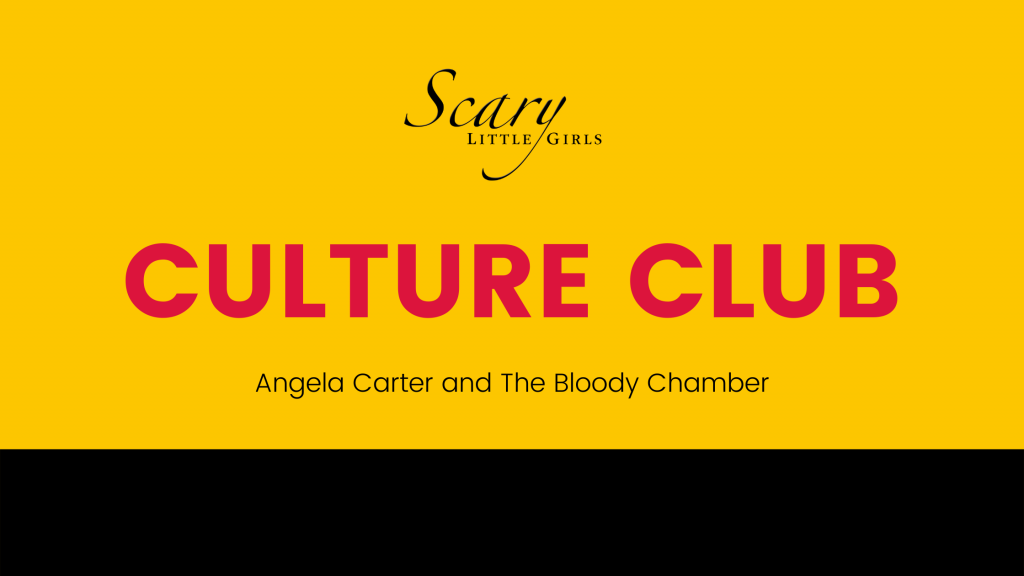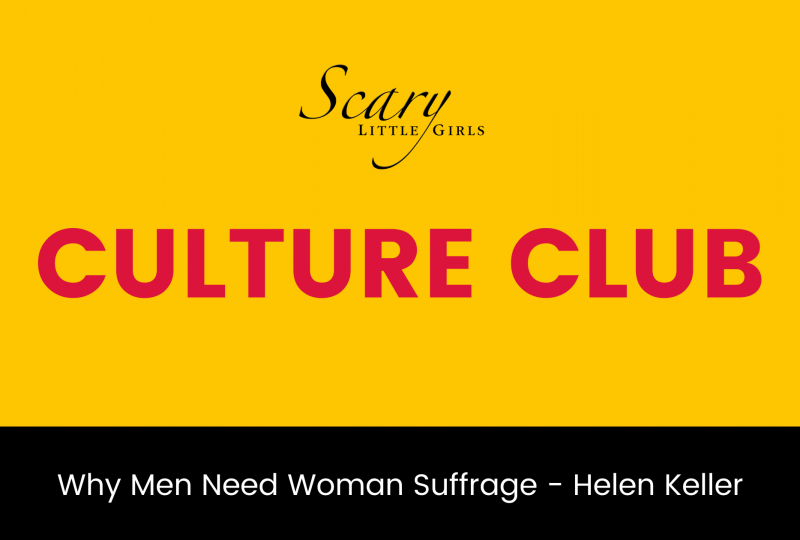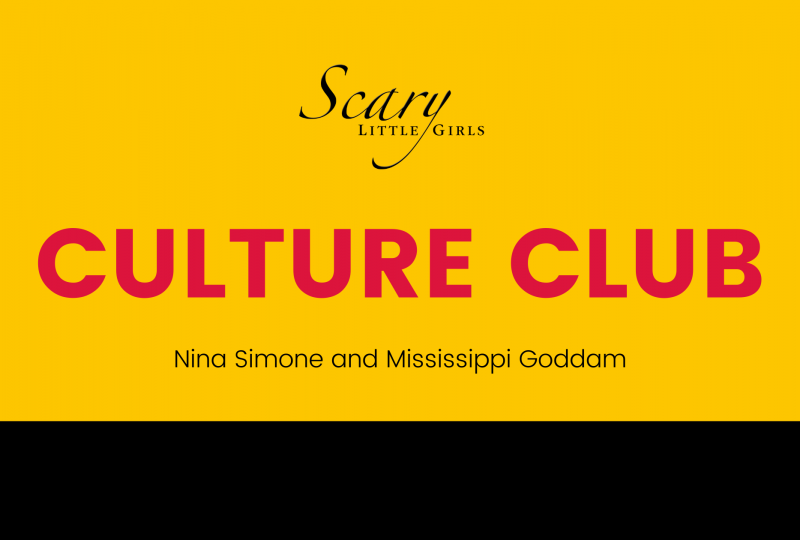
Welcome to our March edition of Culture Club, our monthly exploration of some of the texts and arts that Rebecca Mordan read from and discussed in our Salon de la Vie events.
With Mothers Day falling in March, we are revisiting our Mothers Day Salon de la Vie, and specifically the story The Bloody Chamber by Angela Carter that Rebecca read from.
The Bloody Chamber is one of ten short stories in the eponymous collection, all based on fairy and folk tales. Interestingly, Angela was clear in her commentary on these stories that, ‘My intention was not to do ‘versions’ or, as the American edition of the book said, horribly, ‘adult’ fairy tales, but to extract the latent content from the traditional stories. ’
This is fascinating. These are the stories of our childhood and embedded right at the heart of them – the latent content she describes – is misogyny, violence, and horror. And beneath that, the passivity of women, the power of men. These are the stories we were told as children, perhaps that we have told children – and, we know that stories shape our thinking. What have these stories done to us? And what does Angela do with them?
Sitting alongside retellings of Beauty and The Beast, Puss in Boots, Sleeping Beauty and more, The Bloody Chamber explores the Bluebeard story. The narrative arc is similar – our narrator is her husbands’ third wife, she has entered the forbidden room using the key ‘I only did what he knew I would do’, seen the evidence of his crimes and fled, dropping the key onto the bloody floor, leaving it stained forevermore. The husband returns from a trip and discovers this act of rebellion, and readies himself to kill his wife for her perceived transgression. Here the narrative shifts – our narrator is in a skyward tower – rather than a cellar – with her lover, a blind piano tuner, with whom she has been spending time during her husbands absence. Unlike in the original, where she asks to pray with her sister, here our narrator thinks of her mother, of courage. Her lover determines to accompany her to the place of her death when together, they hear hoofbeats.
‘I cast one last, desperate glance from the window and, like a miracle, I saw a horse and rider galloping at a vertiginous speed along the causeway, though the waves crashed, now, high as the horse’s fetlocks. A rider, her black skirts tucked up around her waist so she could ride hard and fast, a crazy, magnificent, horsewoman in widow’s weeds.’
In our Salon, Rebecca said, ‘This was the first story I read where a mum was an absolute kick-ass hero’ and really – isn’t she? Can’t you hear the rhythmic thump of the hooves, getting faster, closer; see the seas spray, taste the salt, and she this wild, wonderful, vigorous woman, on a mission to save her daughter. Her hair is wild and loose, and her legs muscular as she urges the horse on.
The story continues.
‘You never saw such a wild thing as my mother, her hat seized by the winds and blown out to sea so that her hair was her white mane, her black lisle legs exposed to the thigh, her skirts tucked round her waist, one hand on the reins of the rearing horse while the other clasped my father’s service revolver and, behind her, the breakers of the savage, indifferent sea, like the witnesses of a furious justice. And my husband stood stock-still, as if she had been Medusa, the sword still raised over his head as in those clockwork tableaux of Bluebeard that you see in glass cases at fairs.
And then it was as though a curious child pushed his centime into the slot and set all in motion. The heavy, bearded figure roared out aloud, braying with fury, and, wielding the honourable sword as if it were a matter of death or glory, charged us, all three.
On her eighteenth birthday, my mother had disposed of a man-eating tiger that had ravaged the villages in the hills north of Hanoi. Now, without a moment’s hesitation, she raised my father’s gun, took aim and put a single, irreproachable bullet through my husband’s head.’
There is so much to appreciate here. Our narrator has been given agency, and sexuality – she has taken a lover. And her mother is not only brave to save her child, but brave in her own right. She does the right thing, the good thing, the only thing – she beats the bully.
After reading that we almost need a deep breath. Perhaps with a cup of tea and a book. Perhaps it’s time to revisit The Bloody Chamber and her sister stories. It’s available online from News from Nowhere or Bookshop.org.uk – both of which still support independent bookshops.






